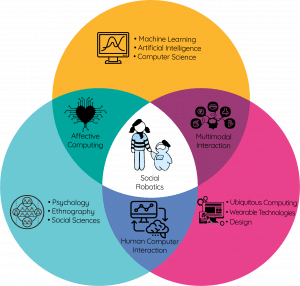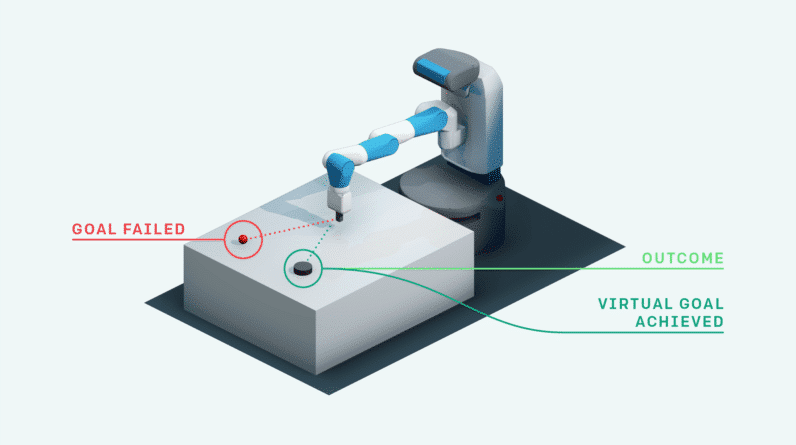In the world of medicine and healthcare, advancements in technology continue to revolutionize the way we approach treatments. One such groundbreaking innovation is the combination of Artificial Intelligence (AI) and drug delivery, specifically in the realm of targeted therapies and nanomedicine. This exciting and dynamic area of research holds great promise for improving the efficacy and precision of drug delivery, ultimately leading to more effective treatments for a wide range of diseases. Whether it’s using AI algorithms to optimize drug formulations or employing nanotechnology to deliver drugs directly to disease sites, the integration of AI and drug delivery opens up a world of possibilities for personalized and targeted medicine.

Overview of AI in Drug Delivery
In recent years, there has been a significant rise in the application of Artificial Intelligence (AI) in various fields, including healthcare. One area where AI has shown great promise is in drug delivery. AI has the potential to revolutionize the way drugs are discovered, developed, and delivered to patients. By leveraging the power of AI, researchers and healthcare professionals can optimize the delivery of drugs, leading to improved patient outcomes and more personalized treatments.
Role of AI in drug discovery
Traditionally, the process of drug discovery has been a complex and time-consuming endeavor. However, with the advent of AI, this process has been greatly accelerated. AI algorithms can sift through vast amounts of data, such as genetic information, scientific literature, and clinical trial data, to identify potential drug targets and predict their efficacy. This not only saves time but also reduces the cost associated with drug discovery.
Advantages of using AI in drug delivery
The use of AI in drug delivery offers several advantages. One of the key benefits is the ability to develop targeted therapies. AI algorithms can analyze individual patient data, such as genetic information and medical history, to identify the most effective drugs for a particular patient. This has the potential to greatly improve treatment outcomes and minimize adverse reactions.
Another advantage of AI in drug delivery is the ability to optimize drug formulations. AI algorithms can analyze various factors, such as the physicochemical properties of drugs and patient-specific characteristics, to design optimal drug formulations. This can enhance drug efficacy and improve patient compliance.
Current applications of AI in drug delivery
AI is already being utilized in various aspects of drug delivery. For example, in precision medicine, AI is used to analyze genetic data and predict the response to specific drugs. This enables healthcare professionals to tailor treatment plans to individual patients, improving the effectiveness of therapies and minimizing side effects.
AI is also being employed in nanomedicine, a field that focuses on the development of drug delivery systems at the nanoscale. By leveraging AI, researchers can design nanoparticles with specific properties, such as targeted drug release and enhanced bioavailability. This has the potential to revolutionize drug delivery by improving drug stability and enhancing therapeutic effects.
Targeted Therapies
Definition and importance of targeted therapies
Targeted therapies are a type of treatment that specifically targets certain molecular or genetic abnormalities that are present in a particular disease. Unlike traditional therapies that can have a broad impact on both healthy and diseased cells, targeted therapies are designed to selectively target cancer cells or disease-causing molecules. This results in more precise and effective treatments, with fewer side effects.
Targeted therapies have gained importance in drug delivery due to their ability to improve patient outcomes and reduce the burden on healthcare systems. By delivering drugs directly to the site of action, targeted therapies can enhance drug efficacy and minimize off-target effects.
Challenges in delivering targeted therapies
While targeted therapies offer great promise, their delivery presents several challenges. One of the main obstacles is achieving efficient and selective drug delivery to the target site. Many targeted therapies rely on specific molecular interactions, which can be difficult to achieve in complex biological systems. Additionally, the presence of biological barriers, such as the blood-brain barrier, can limit drug delivery to certain target sites.
How AI can optimize delivery of targeted therapies
AI can play a crucial role in optimizing the delivery of targeted therapies. By analyzing patient-specific data, such as genetic information and medical history, AI algorithms can identify the most effective drug targets and predict the response to specific therapies. This enables healthcare professionals to make informed decisions regarding treatment plans, maximizing the chances of success.
AI can also assist in the design of drug delivery systems that can efficiently transport targeted therapies to the desired site of action. By analyzing factors such as drug properties, physiological conditions, and the presence of biological barriers, AI algorithms can optimize the design of drug carriers to enhance drug delivery efficiency.

Nanomedicine
Introduction to nanomedicine
Nanomedicine is a field that combines the principles of nanotechnology with medicine to develop innovative drug delivery systems at the nanoscale. Nanoparticles, typically ranging from 1 to 100 nanometers in size, are designed to carry drugs to specific target sites, improving drug efficacy and reducing side effects.
Nanomedicine offers several advantages over traditional drug delivery systems. The small size of nanoparticles allows for improved drug penetration into tissues and cells, enhancing therapeutic efficacy. Additionally, nanoparticles can be surface-modified to target specific cells or tissues, leading to enhanced drug accumulation at the site of action.
Advantages and challenges of nanomedicine in drug delivery
One of the key advantages of nanomedicine is its ability to improve the bioavailability of drugs. By encapsulating drugs within nanoparticles, the stability and solubility of the drugs can be enhanced, resulting in enhanced drug absorption and distribution within the body. This can lead to lower dosage requirements and reduced side effects.
However, there are also challenges associated with the use of nanomedicine in drug delivery. One of the main challenges is ensuring the safety of nanoparticles. The toxicity and long-term effects of nanoparticles on the human body need to be thoroughly evaluated before widespread use.
Role of AI in advancing nanomedicine
AI has the potential to significantly advance the field of nanomedicine. By analyzing large datasets and performing complex simulations, AI algorithms can optimize the design of nanoparticles for targeted drug delivery. This can lead to more effective and safe drug delivery systems, enhancing therapeutic efficacy and minimizing adverse effects.
Additionally, AI can help in the discovery and development of novel nanomaterials with improved properties. By predicting the behavior of nanomaterials at the molecular level, AI algorithms can guide the design of nanoparticles with specific characteristics, such as controlled drug release and enhanced biocompatibility.
Drug Delivery Systems
Types of drug delivery systems
Drug delivery systems can be classified into different categories based on their mechanism of action and mode of drug release. Some common types include oral delivery systems, transdermal patches, injectable systems, and implantable devices.
Oral delivery systems involve the administration of drugs through the mouth, typically in the form of tablets or capsules. Transdermal patches deliver drugs through the skin, allowing for sustained and controlled drug release. Injectable systems involve the direct injection of drugs into the body, providing immediate action. Implantable devices are designed to release drugs over an extended period of time and can be placed within the body.
Advancements in drug delivery systems
Advancements in drug delivery systems have significantly improved the efficiency and effectiveness of drug delivery. For example, the development of nanocarriers, such as liposomes and polymeric nanoparticles, has allowed for targeted drug delivery and enhanced drug stability.
Furthermore, the emergence of smart drug delivery systems, which can respond to physiological cues and release drugs on-demand, has revolutionized drug delivery. These systems utilize stimuli-responsive materials, such as pH-sensitive polymers and temperature-sensitive hydrogels, to release drugs in a controlled manner at the desired site of action.
AI-powered drug delivery systems
AI has the potential to further enhance drug delivery systems by optimizing their design and functionality. By analyzing patient-specific data and physiological parameters, AI algorithms can tailor drug delivery systems to individual patients, ensuring personalized treatments.
Moreover, AI can assist in the development of intelligent drug delivery systems that can adapt and respond to changing conditions within the body. By integrating sensors and feedback mechanisms, AI-powered drug delivery systems can dynamically adjust drug release rates and dosages, optimizing therapeutic outcomes.

Artificial Intelligence and Precision Medicine
Role of AI in personalized medicine
Precision medicine aims to tailor treatments to individual patients based on their specific characteristics and needs. AI plays a vital role in enabling personalized medicine by analyzing large datasets, such as genomic and clinical data, to identify patterns and make predictions regarding treatment outcomes.
By employing AI algorithms, healthcare professionals can identify patients who are more likely to respond to certain treatments and predict the occurrence of adverse reactions. This allows for the selection of the most suitable treatment option, improving patient outcomes and reducing healthcare costs.
Applications of AI in precision medicine
AI has a wide range of applications in precision medicine. One notable application is the identification of biomarkers that can predict treatment response. By analyzing genomic and proteomic data, AI algorithms can identify biomarkers associated with specific diseases or treatment outcomes.
AI can also assist in clinical decision support by providing evidence-based recommendations for treatment plans. By analyzing a patient’s medical history, diagnostic tests, and treatment outcomes, AI algorithms can generate personalized treatment recommendations, helping healthcare professionals make informed decisions.
Integration of AI and drug delivery for precision medicine
The integration of AI and drug delivery has tremendous potential in precision medicine. By combining patient-specific data, such as genetic information and medical history, with advanced drug delivery systems, healthcare professionals can optimize treatment outcomes.
AI can assist in the design of drug delivery systems that are tailored to the individual patient’s needs. By considering factors such as drug properties, patient characteristics, and disease-specific parameters, AI algorithms can optimize drug delivery systems to maximize therapeutic efficacy and minimize side effects.
Furthermore, AI can predict the response to specific drug delivery systems and identify patients who are more likely to benefit from targeted therapies. This enables healthcare professionals to select the most appropriate drug delivery system for each patient, ensuring personalized and effective treatments.
Machine Learning in Drug Delivery
Introduction to machine learning
Machine learning is a subset of AI that focuses on the development of algorithms that can learn from and make predictions or decisions based on data. In the context of drug delivery, machine learning algorithms can analyze large datasets to identify patterns and make predictions regarding drug efficacy, toxicity, and side effects.
Machine learning algorithms can be divided into two main categories: supervised learning and unsupervised learning. Supervised learning algorithms learn from labeled data, making predictions based on previously seen examples. Unsupervised learning algorithms, on the other hand, discover hidden patterns and structures within unlabeled data.
Applications of machine learning in drug delivery
Machine learning algorithms have various applications in drug delivery. One of the key areas is drug repurposing, where existing drugs are used to treat different diseases. Machine learning algorithms can analyze large datasets, including genomic data and clinical trial data, to identify potential drug candidates for repurposing. This can save time and resources in the drug development process.
Machine learning also plays a crucial role in predicting drug toxicity and side effects. By analyzing data from preclinical studies and clinical trials, machine learning algorithms can identify patterns and predict the likelihood of adverse reactions. This can aid in the decision-making process regarding drug development and treatment selection.
Challenges and limitations of using machine learning in drug delivery
While machine learning offers great potential in drug delivery, there are also challenges and limitations that need to be addressed. One of the main challenges is the availability and quality of data. Machine learning algorithms require large and diverse datasets to make accurate predictions. However, obtaining such datasets can be challenging, particularly in the context of rare diseases or novel drug candidates.
Another limitation is the interpretability of machine learning models. Complex machine learning algorithms, such as deep learning, can be opaque and difficult to interpret. This can make it challenging to gain insights into the underlying mechanisms and decision-making processes of the models.

AI Optimization of Drug Formulations
Importance of optimal drug formulations
Optimal drug formulations are crucial for ensuring the efficacy and safety of drugs. The formulation of a drug can significantly impact its pharmacokinetics, bioavailability, and stability. Therefore, it is essential to design drug formulations that optimize drug delivery to the target site while minimizing adverse effects.
By achieving optimal drug formulations, healthcare professionals can improve treatment outcomes and enhance patient compliance. This can lead to reduced treatment costs and a better overall healthcare experience for patients.
Role of AI in optimizing drug formulations
AI can play a vital role in optimizing drug formulations by analyzing a wide range of factors, such as physicochemical properties of drugs, patient-specific characteristics, and drug delivery systems. By leveraging AI algorithms, researchers can identify the optimal combination of drug formulation components, ensuring maximum drug stability and bioavailability.
Furthermore, AI can assist in predicting the behavior of drugs within the body, enabling the design of drug formulations that enhance drug release profiles and prolong drug action. This can lead to more efficient drug delivery and improved therapeutic outcomes.
Examples of AI-driven drug formulation optimization
Several examples of AI-driven drug formulation optimization have emerged in recent years. For instance, researchers have used machine learning algorithms to analyze large datasets of drug properties and patient characteristics to identify optimal drug formulations for specific diseases.
In one study, researchers used AI algorithms to optimize the formulation of a chemotherapy drug, improving its stability and reducing side effects. By analyzing the physicochemical properties of the drug and patient-specific parameters, the researchers were able to identify the optimal formulation that improved drug delivery and enhanced therapeutic efficacy.
Similarly, AI algorithms have been used to optimize the formulation of vaccines, ensuring maximum immunogenicity and stability. By considering factors such as antigen properties, adjuvant selection, and dosing regimens, AI can guide the design of vaccine formulations that elicit strong immune responses.
AI for Predictive Modeling of Drug Delivery
Role of AI in predicting drug delivery outcomes
Predictive modeling of drug delivery aims to forecast drug pharmacokinetics, distribution, and effects within the body. AI plays a crucial role in this process by analyzing large datasets and identifying patterns that can predict drug delivery outcomes.
By understanding how drugs behave within the body, healthcare professionals can optimize drug dosing regimens and tailor treatment plans to individual patients. This can result in improved therapeutic efficacy, reduced side effects, and enhanced patient outcomes.
Applications of predictive modeling in drug delivery
Predictive modeling has several applications in drug delivery. One notable application is in the field of pharmacokinetics, where AI algorithms can analyze data on drug absorption, distribution, metabolism, and excretion. This can aid in the selection of optimal drug dosing regimens and the prediction of drug concentrations within the body.
Predictive modeling also plays a crucial role in drug-drug interaction prediction. By analyzing large databases of drug interactions, AI algorithms can identify potential interactions and predict their effects on drug pharmacokinetics and efficacy. This can help healthcare professionals avoid potentially harmful drug combinations and optimize treatment plans.
Challenges in implementing AI for predictive modeling of drug delivery
Implementing AI for predictive modeling of drug delivery presents several challenges. One of the main challenges is the availability and quality of data. Predictive modeling algorithms require large datasets that accurately represent the complexity of drug delivery processes. Obtaining such datasets can be challenging, particularly in the context of rare diseases or novel drug candidates.
Furthermore, the implementation of predictive modeling algorithms in clinical practice requires robust validation and evaluation. AI algorithms need to be thoroughly tested and validated using real-world data to ensure their accuracy and reliability. This can be a time-consuming and resource-intensive process.

Ethical and Regulatory Considerations
Ethical considerations of AI in drug delivery
The use of AI in drug delivery raises several ethical considerations that need to be addressed. One such consideration is the protection of patient privacy and data security. AI algorithms rely on large datasets that contain sensitive patient information. It is crucial to have robust data protection measures in place to ensure patient confidentiality and prevent unauthorized access.
Another ethical concern is the potential bias in AI algorithms. AI algorithms learn from historical datasets, which may contain biases and inequalities in healthcare. If these biases are not properly addressed, AI algorithms can perpetuate and amplify existing health disparities.
Regulatory challenges and guidelines for AI in drug delivery
Regulating the use of AI in drug delivery presents several challenges. Traditional regulatory frameworks may not be well-suited to accommodate the rapidly evolving field of AI. New regulations and guidelines need to be developed to ensure the safe and effective use of AI in drug delivery.
Regulatory agencies, such as the Food and Drug Administration (FDA), are actively working to address these challenges. The FDA has released a framework for the regulation of AI-based medical devices, outlining the criteria for their approval and ensuring patient safety.
Balancing AI innovation and patient safety
Balancing AI innovation and patient safety is essential in the field of drug delivery. While AI holds great promise in optimizing drug delivery and improving patient outcomes, it is crucial to ensure that patient safety remains a top priority.
Transparency and accountability are key in achieving this balance. AI algorithms should be explainable and transparent, allowing healthcare professionals to understand the underlying mechanisms and decision-making process. Moreover, robust validation and evaluation processes should be in place to ensure the accuracy and reliability of AI algorithms before they are implemented in clinical practice.
Future Perspectives and Conclusion
Emerging trends in AI and drug delivery
The future of AI in drug delivery holds great promise. Several emerging trends are expected to shape the field in the coming years. One such trend is the integration of AI with other advanced technologies, such as nanotechnology and robotics. This can lead to the development of intelligent drug delivery systems that can autonomously identify and respond to disease-related cues.
Another emerging trend is the use of AI in real-time monitoring and feedback systems. By integrating sensors and wearable devices with AI algorithms, healthcare professionals can continuously monitor patients’ responses to treatments and adjust drug delivery parameters in real-time. This can lead to more precise and personalized treatments.
Potential impact of AI on future drug delivery approaches
The potential impact of AI on future drug delivery approaches is profound. AI has the potential to transform the entire drug development process, from discovery to delivery. By leveraging AI algorithms, researchers can accelerate the identification of drug targets, optimize drug formulations, and personalize treatment plans.
Furthermore, AI has the potential to democratize healthcare by improving access to healthcare services in underserved areas. Telehealth and remote monitoring systems powered by AI can provide remote consultations and continuous patient monitoring, bridging the gap between healthcare providers and patients.
Conclusion and summary of key points
In conclusion, AI has the potential to revolutionize drug delivery by optimizing drug formulations, predicting treatment outcomes, and personalizing treatments. AI algorithms can analyze large datasets and identify patterns that can enhance drug efficacy, minimize side effects, and improve patient outcomes.
AI is already being utilized in various aspects of drug delivery, including targeted therapies, nanomedicine, and precision medicine. However, there are challenges and ethical considerations that need to be addressed, such as data privacy, bias, and regulatory frameworks.
The future of AI in drug delivery holds great promise, with emerging trends such as the integration of AI with advanced technologies and real-time monitoring systems. The potential impact of AI on future drug delivery approaches is substantial and has the potential to transform healthcare as we know it.






